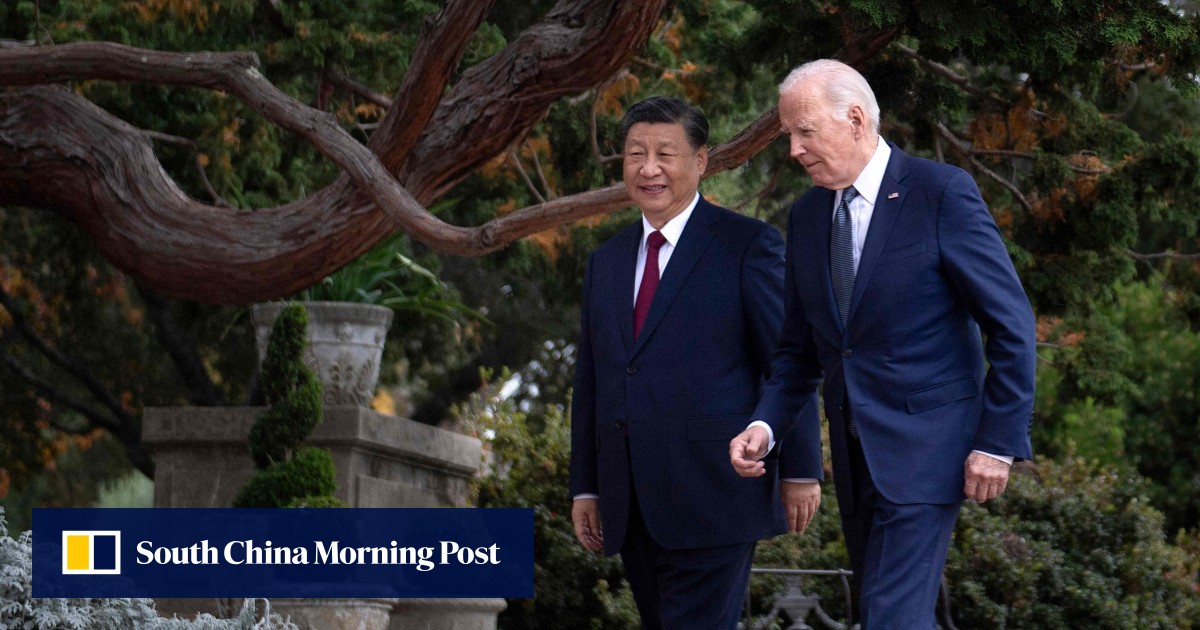The official had also said that the two countries were planning to hold talks in Hawaii this week through the Military Maritime Consultative Agreement, a platform for theatre operators to discuss maritime safety.
That meeting took place after China froze high-level military contacts in protest at then-House speaker Nancy Pelosi’s visit to Taiwan, something Beijing saw as a major breach of its sovereignty.
Xi-Biden phone call signals deepening disconnect on tech, economy: analysts
Xi-Biden phone call signals deepening disconnect on tech, economy: analysts
The issue of Taiwan remains a major area of contention between the two powers, and heightened cross-strait tensions in the run-up to the inauguration of the island’s next president William Lai Ching-te – whom Beijing sees as a separatist – along with a series of clashes between China and the Philippines, a US ally, in the South China Sea, have raised concerns about potential flashpoints between the two countries’ militaries.
Beijing views Taiwan as part of China and has never renounced the use of force to bring it back under its control. The US, in common with most countries, does not officially recognise Taiwan as independent but opposes any forcible change in the status quo and is legally bound to help the island defend itself.
Ren Xiao, director of the Centre for the Study of Chinese Foreign Policy at Fudan University in Shanghai, said the talks between the two militaries are showing “relatively positive momentum”.
He said: “Communication and contact at all levels between the two militaries are conducive to avoiding tensions or even clashes between the two sides in those regions.”
However, Xi and Biden eventually met face-to-face in California in November, where they agreed to resume military communications. Since then a number of senior commanders have spoken, including Chairman of the US Joint Chiefs of Staff Charles Brown and his Chinese counterpart Liu Zhenli in December.
Xi and Biden also agreed to further talks on non-defence matters in their call, and Ren said: “My feeling is that from now until the US elections in November, [relations] can generally remain stable.”
But he said expectations for future exchanges “should not be too high”, adding: “Under the current situation where the general strategic landscape is difficult to change, there can only be some relatively small and pragmatic progress.”
Xi, Biden have ‘candid’ talks, progress relations in first phone call since 2022
Xi, Biden have ‘candid’ talks, progress relations in first phone call since 2022
The two leaders’ phone call was “a very important step”, according to James Heimowitz, honorary chair of the New York-based China Institute.
“The fact that the next step is going to be more communications with people at the next level down, who are going to further articulate their anxieties and concerns and aspirations, is nothing but good,” said Heimowitz, who is also a senior adviser to the South China Morning Post.
“It’s a step in the direction of the renormalisation and recalibration of what should be a very long-term relationship.”
The two presidents have also agreed to talks on artificial intelligence, but the first meeting of their inter-governmental dialogue mechanism on AI has yet to take place.
“If the US side expresses interest, I think the Chinese side will surely be willing to talk,” Ren said.
